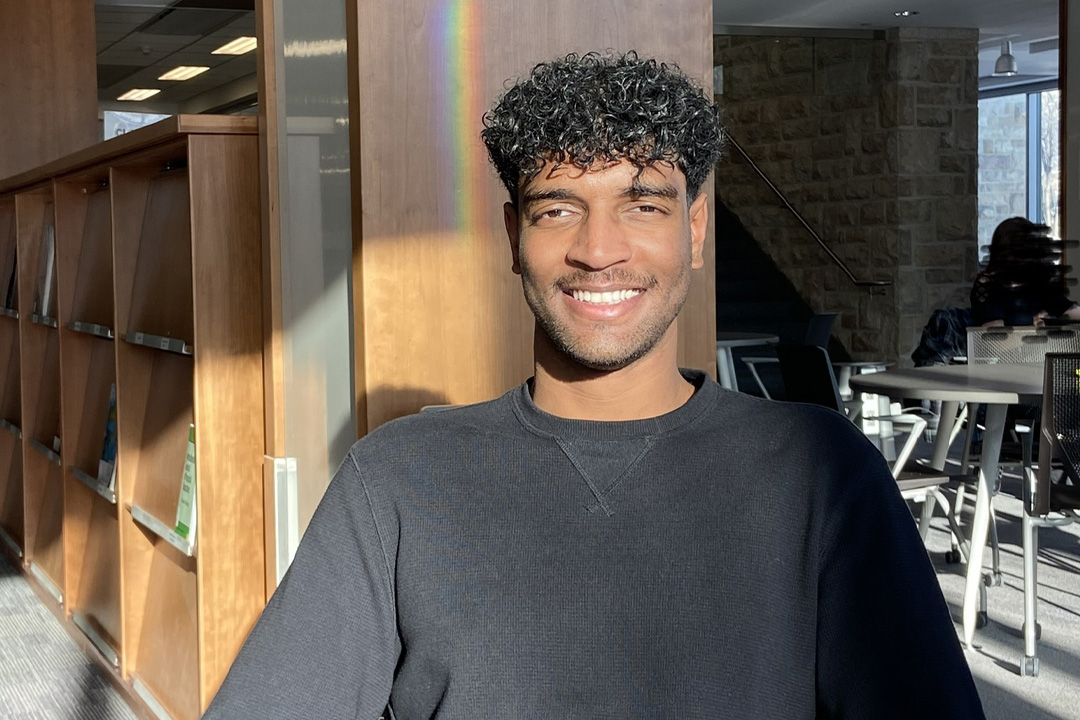
Q+A: USask Black Medical Students’ Association student leader champions importance of community building
In his second year of the Doctor of Medicine program at the University of Saskatchewan (USask), Mutjaba Ibrahim took the time to reflect on his experience as a member of the Black community growing up in Saskatoon, and why being a part of Black student associations such as the Black Medical Students’ Association (BMSA) is necessary to help build community and a more inclusive future.
By BROOKE KLEIBOERThe USask BMSA chapter is part of the larger Black Medical Students’ Association of Canada, a collaborative network of Black medical students across the country that was established in 2020 and involves Black students from 17 different Canadian medical schools.
Q: Why did you choose medicine as your career path?
I was raised in a low-income, single-parent household here in Saskatoon. A lot of my problems growing up revolved around economic hardships. I figured attending university and working hard to distinguish myself was the only path I had to a reasonable quality of life as an adult.
I chose USask specifically because it offered a diverse range of programs. It was after the first year of my Bachelor of Science degree that I decided medicine was a good option. It allowed me to express my curiosity while having a life-changing impact on people’s lives.
Q: Why is it important to have student associations like the BMSA on the USask campus?
The USask BMSA has built a community of medical students and physicians like no other. I attended the physician, resident, and medical student mixer hosted by the USask BMSA last year and witnessed it first-hand. The community building done by the BMSA makes the medical education process more palatable for members. It also enables members to advocate more effectively for Black issues in the medical and health field.
Unfortunately, racism is still prevalent in medicine, and it’s hard to know how deep it cuts until you’re on the receiving end of it. One of the many important roles the BMSA has is to address the needs of Black medical students and patients regarding racism.
Q: The Black Medical Students’ Association has developed Calls to Action for the College of Medicine to address anti-Black racism. How does the BMSA work with the college to achieve these calls?
This initiative is representative of a lot of the other initiatives set forth by the BMSA. It is a push for meaningful change. The BMSA actively works with the college to achieve these calls, and I’m aware of various EDI initiatives and research that the college conducts in collaboration with the BMSA as well.
Q: Do you have a professor or inspiring figure you look up to in your chosen field within medicine? Who are they and why do they inspire you?
Edith Conacher, Student Affairs Coordinator at the College of Medicine, is most definitely an inspiring figure I look up to. Edith has gone above and beyond for the well-being of myself and my entire class alike. The level of kindness and passion Edith has is something I strive for in my own career.
The BMSA and other USask student groups are hosting a variety of Black History Month events throughout the month of February, including a movie night, Black health care panel, and more. They can be found on Instagram at @usaskbmsa. Visit USask’s Black History Month website for more stories and information on events happening on campus and in the community during the month of February.

